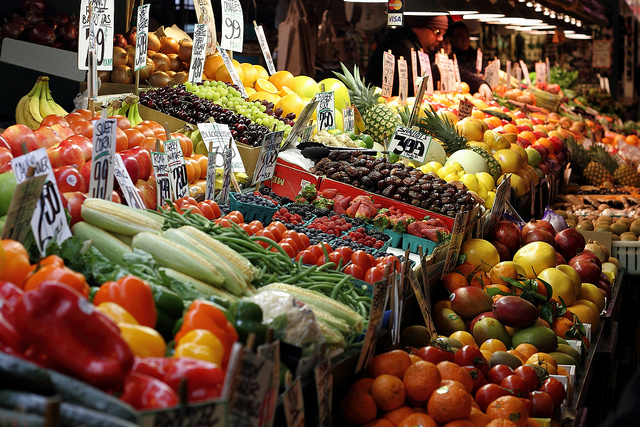On Thursday, July 23rd, the House passed the Safe and Accurate Food Labeling Act.
Going by the title alone, it’s hard to imagine at first what could be so controversial about it. After all, who isn’t in favor of safe and accurate food labels?
Even the wording of the bill seems to be working in the consumer’s interest—stating that the need for it results from the following:
“Proposed Federal and State laws threaten this innovation by generating a patchwork of differing labeling requirements, which will result in inconsistent and confusing information for consumers and interfere with interstate commerce”.
For those that are puzzled by what that they could be referring to, it’s simple.
If passed and signed into law—the bill would ban state laws that require food manufacturers to label products that contain GMOs. (A few states that have such laws include Vermont, Maine and Connecticut.)
The bill is seen as a big victory for the food and chemical industries, who lobbied hard for it’s passage, but anti-GMO activists are understandably upset.
The issue over GMOs is—as Slate science writer William Saletan writes—“complicated.” It’s important to keep in mind that many prominent organizations have declared that there is nothing to support the premise that they are unsafe—including the World Health Organization, the American Medical Association, the National Academy of Sciences and the American Association for the Advancement of Science.
The vast majority of people in the US have probably consumed GMOs—whether we realize it or not.
However, even those that consider themselves firmly on the side of science may have a problem with this bill. This is because by having such a bill become law, consumers lose the right to decide for themselves if they want to buy and consume food with GMOs.
As Minnesota Democratic representative Rick Nolan, who voted against the bill, has stated:
“The issue isn’t whether GMO foods are healthy or safe…It’s about the right to know what’s in the food we buy for ourselves and our families. This is a serious problem begging for a solution. As yet, we haven’t seen a good one.”
Nolan has a point.
Bloomberg Business reports, “A recent poll that found nine in 10 Americans support GMO labeling.”
Meanwhile, another Minnesota Democrat—who voted in favor of the bill—argues that the bill addresses those concerns because “it changes the current review process to ensure that every new genetically engineered plant destined to enter the market goes through an FDA safety review [and] sets a national, uniform standard to define genetically engineered products,” but one can still argue that even if the bill accomplishes all that—it is still not enough for those that want to know what is in the food they are buying. Plus, it is possible to do this and still allow for GMO labels.
The bill is now up for a vote in the Senate, and while support for it is not expected to be as strong as it is in the Senate, the bill could be attached to other legislation and passed.
Those who feel strongly about it one way or another, should contact their Senators.
Now is the time to get the word out and have our voices heard regarding this controversial issue.
.
Relephant:
Why don’t we like GMOs?
Hell No, GMOs!
Author: Kimberly Lo
Editor: Yoli Ramazzina
Photo: Flickr/Roving-Aye!












Read 0 comments and reply